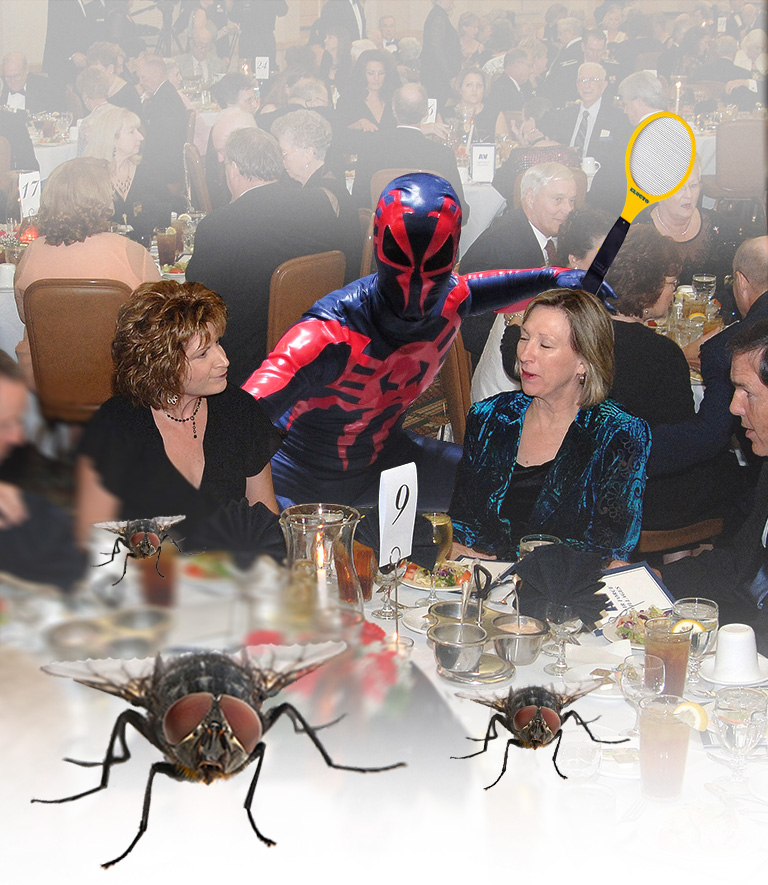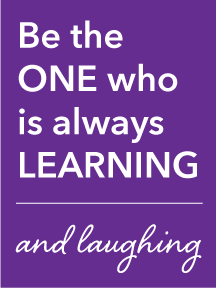
Everyone has those stories of events or projects, big or small, professional or personal, which just don’t quite live up to expectation. Overall, someone from the outside, like an attendee or participant, could objectively look at it and say, “It went fine!” However, you knew the event’s potential and it didn’t quite live up to your expectations.
Note: If you are asked to review an event, don’t shy away! We prefer full sentence reviews, telling us what went well and what didn’t. Let’s look at a few hypothetical situations and apply them to best practices for planning and implementing a great event or project.
Flies during dinner
The situation is this – you, the meeting host, arrive to your dinner event to find that the reserved room is filled with flies. These flies have not been invited to dinner and certainly have no place in the professional environment of the meeting soon to be held. You evaluate your options and determine a few solutions. The solutions could be to open a door or window, find a fly swatter, or change rooms. There is approximately one hour before guests arrive, so you quickly open all the doors and windows while continuing to set up the room.
Who Is In Charge Here?
After 20 minutes of allowing the flies a peaceful escape, it is obvious that the task will require more force than gentle persuasion. A quick conversation with the general manager of the venue is less than encouraging. “Sometimes the flies just get in; we don’t have any extra staff to take care of them though.” Feeling frustrated and certainly crunched for time, your options now are more limited. The venue does not have a fly swatter or the staff to assist. As the pressure mounts to maintain a professional environment, not to mention a healthy eating space, you remember who is in charge. Certainly there is a way to advocate for your client (event, project, etc.) without being offensive. A quick deep breath and you calmly approach the general manager again. “Thank you,” you begin, “for providing us the opportunity to meet in this space. However, this environment has not been prepared in accordance with the expectations we have set.” With a calm, professional, but assertive tone and expression, you ask that someone be called to assist in removing the flies prior to the guests arriving for dinner.

That One Client (or Employee, or Co-Worker, or Family Member…)
A short time later, back-up has arrived! The issue now is that the gentleman with the electric fly swatter arrived at nearly the same moment as the first guest and is actually looking forward to using the swatter with a little too much gusto! You attempt to occupy the attention of the first guest, then the others who flow in, while the fly issue is being resolved. You remind yourself of the following: at times, the only solution is to smile while other parties complete the tasks they are responsible for. We have all been given opportunities to learn, opportunities to fail, and opportunities to learn from failure. When these occasions occur, we must invite them while examining the situation as a whole. Will “Fly Guy” save the evening by removing the flies? Yes! Will he frighten some of the guests in the process? Possibly. Your role has now become facilitator of a wonderful evening. To make the best of the night, you engage everyone in conversation and gratefulness for a fly-free dining environment. When the evening ends, you quietly thank Fly Guy for his help and respectfully ask that, in the future, the flies be removed with a little less super-hero commentary in the presence of guests. The feedback is well received and everyone had an opportunity to contribute and learn.

Calling for Backup
When all the guests have been seated with their dinner and the presentation is in process, an issue with the electronic equipment stalls the learning environment. Once more, the guests are engaged in friendly conversation while the equipment is examined for a quick-fix. When it is apparent that the supplier of the projector experiencing issues will need to be called, you quickly reach for the spare projector in your own bag. You can never be too prepared! Making the switch is easy and the presentation can proceed with the new projector. When the provider of the original A/V arrives, he is also able to make the repair quickly and quietly and the evening once again resumes. We can recognize how empowering it is to be prepared. Considering the “what-ifs” does not have to be a negative experience. When we arrive to events ready to help wherever we can, our confidence gives others the peace of mind to perform their role to the best of their ability. And when, after all we can do, there are still issues beyond our control, calling for help can give everyone an opportunity to learn.
 An event that goes off without a hitch is everyone’s ideal (although nearly non-existent). However, when we are willing to examine a less than noteworthy event through a problem-solving lens, we can add skills and experience to our abilities and those around us. Identifying the perceived problem and potential solutions, being assertive and recognizing our role, allowing others opportunities to learn, and being prepared are skills that open the door for better executed events in the future (and with the right attitude, a few chuckles along the way)!
An event that goes off without a hitch is everyone’s ideal (although nearly non-existent). However, when we are willing to examine a less than noteworthy event through a problem-solving lens, we can add skills and experience to our abilities and those around us. Identifying the perceived problem and potential solutions, being assertive and recognizing our role, allowing others opportunities to learn, and being prepared are skills that open the door for better executed events in the future (and with the right attitude, a few chuckles along the way)!
About the Author:
Ashley is a born and raised Bitterrooter who regained her roots after moving back to Montana in 2014. When she isn’t planning her next great adventure with her three children, she can be found outdoors soaking up sun, water, and fresh air. Ashley has learned that life is unpredictable and the best laid plans are ones built with flexibility and passion. Her favorite planning tools are her epic lists that float in and out of drawers and counters, and her detailed agenda in Google Calendar. She has recently discovered the excitement of capturing her life in pictures and documents her foodie, outdoor, kiddie, scenic, and more spontaneous moments on Instagram. You can follow her daily adventures at httpss://www.instagram.com/reachday1/.







